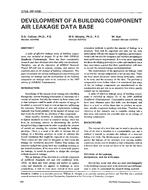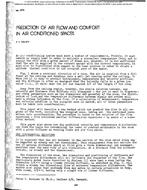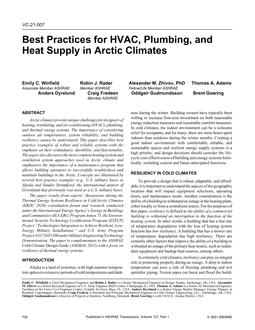Click here to purchase
Envelope performance evaluation, namely evaluation of the thermal properties (thermal transmittance and capacity)and air tightness are becoming increasingly important forachieving energy efficient homes. Unlike traditional evaluation methods—such as those based on initial design data, measured structure data from sampling, and in-situ measurements using a heat flow meter— the model-based envelope performance evaluation method proposed in this paper isbased on a simplified home thermal model. This method can evaluate the overall home envelope thermal performance, i.e.,the integration of thermal properties and airtightness, using a short period of indoor and outdoor air temperature data. Depending on the availability of the wind or not, this method can also evaluate the airtightness of an envelope. Three sequential experiments were conducted to validate the effectivenessof the method. The first experiment showed the wind effect can cause around 15% difference in envelope thermal property estimations; the second experiment suggested wind data collected from a city weather station might not be accurate to represent the local wind conditions near the test home; and the third experiment, using data collected from 1,676 homes, demonstrated that the envelope performance decreased proportionally as the home age increased for homes that were 5 to 40 years old, while there were no distinctive patterns for homes older than 40 years due, perhaps, to a small sample size. The demonstrated results of the third experiment align well with the expectation that younger homes experience better home envelope thermal performance. Although more experiments are needed, with knowledge of the ground-truth of the test home envelope conditions, the results of this papershow that the model-based envelope performance evaluation method can be an efficient, practical, and effective alternativeto the traditional methods by eliminating physical heat flow orconstruction material property measurements.
Citation: 2020 Winter Conference, Orlando, FL Technical Papers
Product Details
- Published:
- 2020
- Number of Pages:
- 12
- Units of Measure:
- Dual
- File Size:
- 1 file , 2.2 MB
- Product Code(s):
- D-OR-20-013


